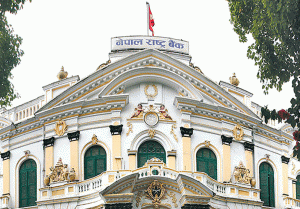
Op-ed pages of broadsheet dailies published in Kathmandu have paid attention to a host of issues including Nepal’s preparation for natural disasters such as floods, the RJP’s stance on the amendment to the constitution and Nepal-India cooperation on river systems.
Nepal’s preparation for natural disasters

According to government figures, 143 people have lost their lives due to floods and landslides triggered by incessant monsoon rains two weeks ago. In this context, Anupama Mahat Bidari and Ramesh Sunam in Nagarik talk about the different facets of a large-scale disaster such as the floods. They say that floods push poor people deeper into the vicious cycle of poverty and have a long-lasting effect on food security.
The authors highlight the role of preventive measures by quoting data from UNDP, which says that every dollar spent on preparedness helps save around $7 during a disaster. The authors conclude by saying that the floods that hit Nepal every year are a reminder that there’s lot to be done at the policy level.
The RJP’s stance on constitution amendment

Nepal’s Parliament is preparing to vote on a key constitution amendment bill on Monday. The bill has been prepared to address the demands of the Madhesh-based political parties, including the RJPN. RJPN co-general secretary Suresh Kumar Mandal, in his piece for Nagarik, says his party must contest the upcoming local elections regardless the fate of the amendment bill.
Can BIMSTEC connect south-southeast Asia?

The ministerial meeting of the regional grouping BIMSTEC recently concluded in Kathmandu with the participant countries vowing to step up efforts to promote connectivity through free trade and movement of people. In this context, Bijendra Man Shakya, in his piece for The Kathmandu Post, says BIMSTEC can pave the way to expedite trade between South Asia and a thriving Southeast Asia.
He says that although BIMSTEC has its drawbacks over SAFTA (the former is based on ‘product approach’), the new regional grouping can be used by Nepal to promote trade with Myanmar and Thailand, both of whom are members of ASEAN. Since BIMSTEC also has SAARC countries, except Pakistan and Afghanistan, as members, it opens the possibility of wider trade with Malaysia and Singapore.
On the importance of non-violent methods for change

Pranab Kharel and Gaurab KC, in their piece for Republica, say that Nepal has witnessed a lot of change in the past few years, “but excessive focus on violent methods of social change often eclipses parallel and competing no-violent methods of change.” The authors, arguing in favour of non-violent means of enacting change, say that while violent means create sworn enemies, non-violent means force even the powerful to come to the negotiating table and to sit for dialogue. They conclude by saying that the onus is now on political parties to promote non-violence and not legitimise the use of force.
Mahesh Maskey interview

Nepal’s former ambassador to China Dr Mahesh Maskey, in his interview with The Kathmandu Post, says the visit by Chinese Vice-premier Wang Yang, an important South Asia hand, to Nepal demonstrates Beijing’s seriousness with regards to its ties with Kathmandu. He says that Beijing may have wanted Nepal to facilitate dialogue between India and China on the Doklam issue. He says that Nepal should stick to its neutrality policy on the issue.
On asked about China’s key interest in Nepal, Maskey says Beijing wants Nepal to develop economically and remain stable so that this also helps Tibet remain stable. On the issue of the Lipulkeh trijuncture between Nepal, China and India, Maskey says this is not the right time for Kathmandu to talk about the topic now.
Shakya says Nepal has a ‘window of opportunity’ in its ties with China following the historic joint statement by leaders of the two countries in 2016. However, Nepal has not done enough to make full use of it.
























